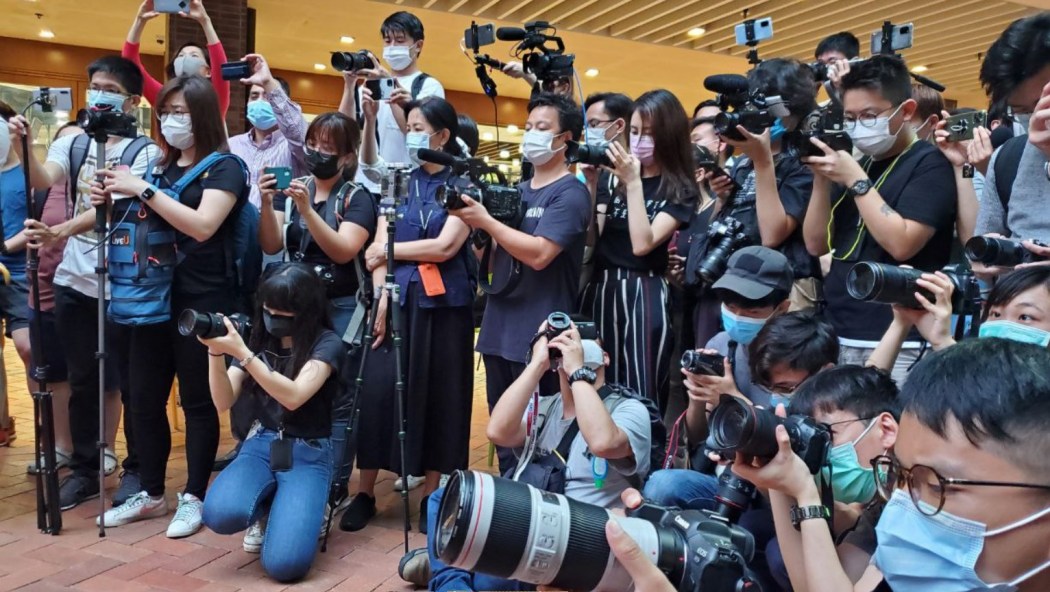How many of us in the often dubious occupation of journalism are qualified “to continue the red blood line,” not forgetting the ability to “adhere to the correct innovation?” Yet these requirements for journalists were set out in a November 6 letter from the Communist Party general secretary to mark the 90th anniversary of the Xinhua News Agency.
There was more in this message, including the need for journalists to follow the party’s leadership and “grasp the correct political direction.” We are also exhorted to “accelerate integration and development.”

This missive does not represent new thinking on how members of the media are supposed to conduct their affairs because these principles were first spelled out in 2016. In 2019, the party’s Central Committee was told by the general secretary that “the trend and law of media integration and development should be fully grasped.”
It had been naively believed that talk of integration did not apply to Hong Kong but, like so many illusions, this one is looking increasingly irrelevant with the unceasing drive to ensure that the concept of “one country, two systems,” focuses on one system.
In case of doubt, the reality of this integration was spelled out in a barely literate 90-page document, plus two hefty appendices, issued by the new bosses of RTHK in September. Its contents are a classic example of double speak that will be familiar to all students of authoritarian governments. Thus, every mention of concepts such as editorial independence and autonomy are quickly qualified by liberal use of the word “responsibility.”
RTHK Editorial Guidelines by HKFP
As the document makes clear, “responsibility” is defined by the political bosses. The word “credibility” also crops up, but again is qualified to make it clear that there is a right and a wrong kind of credibility. In other words, impartiality, credibility and fairness, the hallmarks of a journalist’s responsibility, are turned on their head to mean something other than the common understanding of these terms.
Lamentably, I know about this at first hand as host of RTHK’s The Pulse current affairs TV programme. It became clear that the word “balance” meant that no one could be interviewed expressing an opposition point of view without a pro-government person also being interviewed. As apologists for the regime would routinely refuse to appear alongside opposition figures, this effectively meant that they could not be interviewed. However, if one of the apologists agreed to be interviewed without any countervailing voice, balance was, apparently, achieved.

The only difference between the situation at the new-and-improved RTHK and that which prevails within mainland media is that across the border no pretence is made of airing opposition voices.
RTHK is only one part of Hong Kong’s media, albeit a very important one and an organisation that comes directly under government control. As such it provides a useful indicator of how the new system works. Yet the rest of the mainstream media, regardless of ownership, is also now effectively under tight control.
Outside the media directly controlled by the government, and by the Communist Party’s propaganda department (the state broadcaster, and newspapers such as Wen Wei Po and China Daily), the allegedly independent owners of other media companies are under constant pressure to prove their loyalty to the “red blood line”. In some cases, the Sing Tao group being a notable example, the craving for acceptance by the party means that their outlets go further to curry favour with Beijing.
A case has been made that remnants of independent mainstream media still survive. There is a modicum of merit in this argument. The South China Morning Post, owned by Communist Party member Jack Ma, is something of a weathervane here as it provides glimmers of independence. But Mr Ma is very much out of favour nowadays and rumours abound of the paper’s transfer of ownership to safer hands and appear to have credibility.

But what of mainstream media from abroad which uses Hong Kong as a base? The great tradition of this place as a vibrant international media centre has suffered body blows, which have already diminished the SAR’s credibility as a safe home for the world’s press.
And the worrying signs continue unabated. Earlier this month, China’s foreign ministry launched an all guns blazing attack on the Foreign Correspondents’ Club Hong Kong for having the temerity to survey its members over their experience of press freedom. The outcome was predictably depressing but nevertheless captured the mood among overseas media based here.
In response, the government accused the club of “meddling” and reminded reporters that there was no such thing as absolute press freedom. It was a shot across the bows and clearly designed to indicate that if the international media wishes to continue operations in the SAR they would have to do so under new rules.
And yet the space for freedom of expression in Hong Kong has yet to shrivel to the extent of that which prevails in the mainland. This raises an obvious question which hardly needs to be spelled out.
Support HKFP | Policies & Ethics | Error/typo? | Contact Us | Newsletter | Transparency & Annual Report | Apps
Help safeguard press freedom & keep HKFP free for all readers by supporting our team
























